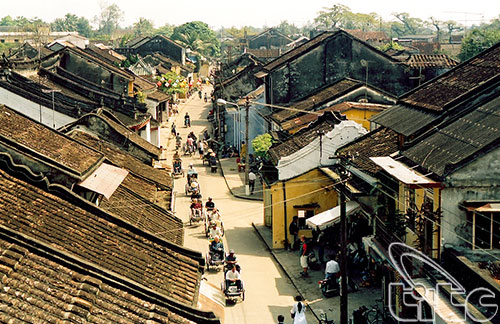Central Quang Nam province held a forum on July 9 seeking ways to improve the tourism sector and identify alternative marketing strategies to attract new global market segments to the province.

Participants at the forum agreed that the locality has made great efforts to upgrade its tourism infrastructure, raise the quality of services, accelerate tourism promotion and enhance investment in tourism products to popularize its tourism brand name.
It has an international reputation as a peaceful and charming town, surrounded by incredibly majestic landscape dotted with lush forests and beautiful lakes.
In the first half of this year, Quang Nam welcomed more than 1.7 million visitors, an increase of 6.2% against same period last year.
The US Conde Nast Traveler magazine has cited Quang Nam’s UNESCO-recognised Hoi An city as the second most attractive destination in Asia while the US Huffington Post Magazine introduced Hoi An as one of seven must-see destinations for visitors to Viet Nam.
The United Nations Human Settlements Programme in Asia also selected Hoi An as a scenic city of 2013 in Asia.
However, the East Sea stand-off caused by China has affected the tourism sector in Vietnam, including Quang Nam. The number of visitors, mainly from China, to the province dropped off 7.3% and 4.4% in May and June, respectively.
The province also faces other challenges, such as erosion of its coastal areas, limited allocation of tourism outside Hoi An, travellers’ short stay at tourism sites like My Son, human resource training, and waste treatment.
To further develop tourism, participants proposed that Quang Nam launch an integrated programme similar to Cambodia’s “The Smile of Angkor” show introducing its historical and cultural features and offering free cuisine.
They stressed the need to allow the use of electric vehicles to ensure green tourism and reduce pollution and improve the quality of “night life” in downtown areas.
The province should pay more attention to developing the MICE tourism model, building websites on tourism and increasing visitors’ duration of stay by opening more shopping centres.
Furthermore, it should closely coordinate with neighbouring provinces in developing tours and promote tourism in potential markets, like Japan, the Republic of Korea, and Russia.